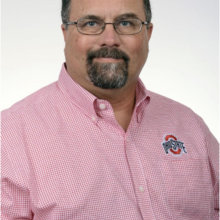IAWC M16 Stress and Relaxation
Master effective stress relief and relaxation strategies to improve your well-being and enhance daily productivity.
Course Overview
Handout M16 Stress
IAWC M16 Handout Relaxation
IAWC M16 Stress Coping Video
IAWC M16 Relax Introduction Video
M16 Required Reading
Required Stress Reduction and Wellness
Optional Loving Kindness Meditation Empathy Intervention
Optional Stress Effects on Body
M16 Self-Compassion Letter Activity
References Stress & Relaxation
M16 Content Quiz
08 M16 Module Evaluation
Autogenics Information
Biofeedback handout
How to Meditate
Labrynth Handout
Leppma (2012) LKM _ Counseling
Guided Imagery Handout
Guided Imagery (Forest)
Peaceful Place Relaxation Script
Mindfulness Relaxation
PMR Script
How would you treat a friend - self compassion

Recorded Program
Introductory
View the entire recording.
Complete the post-test with a passing grade of at least 80%
Complete the course evaluation

Ohio CSWMFT Approval
This training is approved for counselor, social work, and marriage and family therapy continuing education. In addition, it is approved by the Ohio Chemical Dependency Board for chemical dependency continuing education. Check CE Broker for detailed breakdown of CE types (provider number 50-24074).
AWSB Approval
NA- This course is not eligible for credit through the ASWB.
NBCC Approval
Mindfully has been approved by NBCC as an Approved Continuing Education Provider, ACEP No. 7322. Programs that do not qualify for NBCC credit are clearly identified. Mindfully is solely responsible for all aspects of the programs.
Individuals with comments/questions/concerns can contact Mindfully Academy via the information provided below:
513-939-0300
Charles Potter (Program Coordinator) [email protected]
Benavides, J., (2023), Rest On Me, Breathe: Emotional Palliative Care. Manuel Barbosa & Filhos, Lisbon.
Butje, A. (2015), Essential Living. Copyright 2015 Andrea Butje.
Butje, A. (2017), The Heart of Aromatherapy. New York: Hay House.
Chillingworth, J. (2019) Live Green, London. Quidrille.
Copeland, M.E. (1997), Wellness Recovery Action Plan. USA: Peach Press
Ellert, C., (2023), Breathe, Love, Heal: Holistic Aroma Therapy. Cecile Ellert. Fall River Press (Barnes and Noble Trademark, 2015.) Essential Oils, Natural Remedies. New York, Fall River Press.
Formanek, C.L., Spector, B.M., Zappitelli, G. et al. (2025). Designing novel “Smell-Aids” to improve olfactory function inn post COVID-19 era. BMC Med 23, 169.
Harding, J. (2015). The Essential Guide to Oils. London, Watkins Media.
Hunt, V., (2025). Sense of Smell Is a Marker for Mortality Risk, With Dementia and Frailty as Key Mediators. JAMA, 333, 22.
Insel, T., (2022). Healing: Our path from mental illness to mental health. Penguin Press.
Johnson, S. (2015), Evidence-Based Essential Oil Therapy. Copyright 2015 Scott
A. Johnson.
Keiser, J. (2019) Chiropractor, Worthington Optimal Wellness, Interview, Worthington, Ohio.
Kensington-Pond, K. (2015). Essential Oils for Health. Massachusetts, Adams Media.
Kerkoff, M., (2023). Clinical Aroma Care. Kicozo, Netherlands.
Leon M, Troscianko ET and Woo CC (2024) Inflammation and olfactory loss are associated with atleast 139 medical conditions. Front. Mo/. Neurosci. 17:1455418. doi:
10.3389/fnmol.2024.1455418
Leon M (2023) Overnight olfactory enrichment using an odorant diffuser improves memory and
modifies the uncinate fasciculus in older adults. Front. Neurosci. ,7:1200448. doi:
10.3389/fnins.2023.1200448
Maine, S. (1999). Creating an Herbal Body care Business. United States, Versa Press.
Keville, K. (2016) The Aromatherapy Garden. Oregon, Timber Press.
Maria, D. (2000). Making Aromatherapy Creams and Lotions. United States, Versa Press.
Schnaubelt, K. (2011), The Healing Intelligence of Essential Oils. Rochester: Healing Arts
Press.
Schwartz, K. (2016) Essential Oils for a Clean Health and Health Home. Massachusetts: Adams Media.
Shealy, C. N. (2018). The Illustrated Encyclopedia of Healing Remedies. London, Harper-
Collins.
Smith, S. & Kistler, S. (2025). Have you experienced loss of smell? Ohio State is leading
research on devices to improve and treat anosmia. In: Ohio State Health & Discovery.
April, 2025.
Vasey, C. (2018 English Translation), Natural Antibiotics and Antivirals. Rochester: Healing
Arts Press.
Worwood, V. (1991). The Complete Book of Essential Oils and Aromatherapy. California, New
World Library.